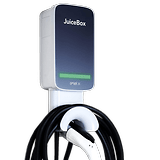
The best EV home chargers in 2024
| Editor’s choice | Budget pick | Premium alternative | Barebones option | |
|---|---|---|---|---|
| Product | ||||
| Image | 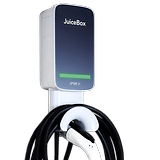 |
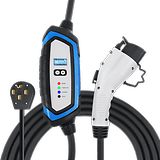 |
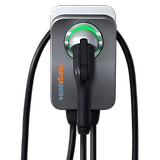 |
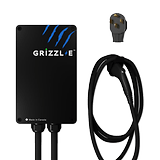 |
| Max. charging power | ||||
| Charging plug | ||||
| Electricity meter | ||||
| Bidirectional | ||||
| Control | ||||
| Authorization | ||||
| MSRP | ||||
| Price Comparison |
|
|
|
|
When buying an EV home charger, there are plenty of things to consider. In this “Best Of” list, we explain the differences between our choice of EV home chargers and also dive into the topic of subsidies. Unfortunately, we at nextpit could not review the EV home chargers ourselves. Therefore, we have searched for reviews and scoured them to find the best EV home chargers for you.
What is an EV home charger?
An EV home charger is also best described as a home charging station for your electric vehicle. With an EV home charger, you charge your own electric vehicle at your own convenience in your garage or driveway without having to constantly search for public charging stations. In addition, charging via your own EV home charger is also cheaper. However, there are a few things to consider, because the charging system must fit your car and your individual needs.
Compared to charging at a conventional 110V socket, EV home chargers also offer other advantages. Above all, charging your e-car is much faster and safer with an EV home charger. Furthermore, EV home chargers also offer their own electricity meter and some degree of monitoring via an app (for selected models) alongside other security features so that unauthorized persons cannot steal electricity from you.
What to consider when buying an EV home charger
Before buying an EV home charger, you should be aware of a few matters. On the one hand, you must meet certain legal requirements, and on the other hand, you should have adequate space to install it in your home. It is also of utmost importance that the installation should be carried out by a professional, regardless of the charging power it carries. We have already talked about these and more points in detail in a dedicated article:
In addition to these aspects, there are important differences between the individual EV home chargers. You should definitely understand terms such as charging power, bidirectionality, or compliant electricity meters before deciding on a particular EV home charger.
- Charging power: When it comes to charging power, you usually see several options. Take 7.7 kW or 10 kW for instance. EV home chargers with a 10 kW charge about 25% faster than a 7.7 kW model. You must make sure though, that the power system in your home can provide sufficient energy to install a 10 kW EV wall charger.
- Bidirectionality: If you have already searched for EV home chargers, you will certainly have come across the term bidirectional. Bidirectional EV home chargers can not only charge the battery in the electric vehicle, but the energy can also flow back to your home. This allows you to use the battery in your electric vehicle as buffer storage for your photovoltaic system, for instance. The important thing is that both the EV home charger and the electric vehicle support the function. The technology is currently not yet widespread, especially in the case of affordable EV home chargers. The models in this best list do not yet support it.
- Electricity Meter: Another important function of EV home chargers are the built-in electricity meters. An electric meter is not only useful for tracking your own power consumption but also suitable for billing your employer in case you have a company car (heh heh!). The cheapest EV home chargers in our comparison do not offer electricity meters.
As mentioned previously: Everything about the connection to the house grid, the required conditions at the house, or information about funding can be found in our EV home charger installation guide. Here you will also find the legal requirements and perhaps open your mind as you find out why it is not a good idea to charge your electric car via a normal socket.
Tesla, VW, or BMW: Which EV home charger is best for my car?
Not every EV home charger is suitable for every electric vehicle. Major car brands Tesla, BMW, Mercedes, and VW usually recommend their own EV home chargers when buying a vehicle from them. However, these are usually much more expensive than the EV wall chargers in this comparison—unless you buy them as a package together with the vehicle, which often includes installation.
Does your vehicle not come with an EV home charger that includes installation? If so, make sure that your vehicle has the right connection. Almost all electric vehicles in the US currently use the Type 1 plug, just like how all the models in our comparison use. This would mean imported models from overseas might result in issues here.
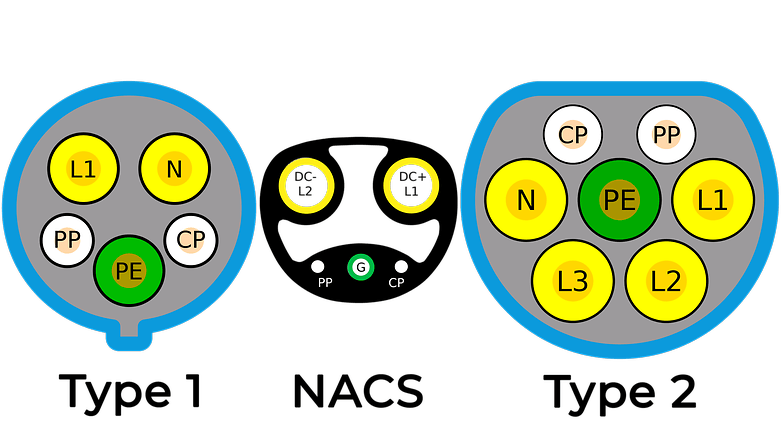
Apart from the right plug, you should also make sure that the EV home charger and the vehicle are compatible in terms of charging power. If your electric vehicle only accepts 3.6 kW, a 10 kW EV home charger is overkill and possibly unnecessarily expensive.
One thing to keep in mind is that Tesla’s charging plug is getting increasingly popular, especially in the US. Originally exclusive to Tesla’s electric cars, the plug has been proposed as the North American Charging Standard, and many of the biggest car brands already announced its adoption for the next few years.
EV home charging incentives
The Federal Government offers a tax credit for selected EV charger hardware and EV charger installation costs, where it covers up to 30% of the costs with a maximum $1,000 credit for residents and a $30,000 federal tax credit for commercial installations. Of course, the amount differs from one company to another, so check with the local authorities to find out the latest details.
The best EV home chargers for all budgets
We’ve combed the web for the best EV home chargers out there–and there was one clear winner that leads the best lists of both Consumerreports and CarAndDriver: the Juicebox 40. Both best lists also feature the ChargePoint HomeFlex, a slightly more expensive alternative that brings more features to the table. Lastly, we’ve also picked two cheaper alternatives that were both recommended by either Consumerreports or CarAndDriver.
Juicebox 40
The JuiceBox 40 is the current all-rounder that seems to do everything right. This smart charger comes with its very own app and supports Wi-Fi connectivity, which you can then use to schedule it to charge your ride at off-peak times to save more money. Equipped with a fairly lengthy cable at 25 feet, you will also heave a sigh of relief knowing that there is additional flexibility when it comes to the choice of mounting location.
Being able to charge up to 40 amps, you can get moving quickly. The installation process is also not too complicated to boot. Too bad there is no electricity cost tracking with the Juicebox 40.
Lectron 32
This Lectron 32 model definitely offers plenty of bang for your hard-earned buck. You can choose from the 16A or 40A model to suit your household outlet while making sure that it is in line with your vehicle’s charge rate without spending unnecessarily on charging capability. You will have to make do without a wall mount though, since it will have to be placed on a simple hose reel or hook that is mounted to the wall in order to remain organized and neat.
There is no Wi-Fi capability here, but the rather tiny LCD screen that displays voltage, amperage, charge time, energy (kWh), and temperature is enough for the basic user. It does allow you to monitor how much juice you have consumed though.
ChargePoint Home Flex
ChargePoint is a household name with thousands of units installed all over the US. The Home Flex unit is integrated into the same app that is used to connect to the company’s public units, making for a seamless transition. You can add your vehicle via the app, using it to tailor the percentage of the battery replenished as well as the number of EPA miles that have been added to your specific vehicle.
You can also view the charge-rate graphs, charge time, and total energy output for each charge session. Want to take advantage of off-peak hour charges? Not a problem at all, as you can set the charging times to suit your timetable. Yes, the ChargePoint Home Flex is the most expensive model in our comparison, but you might get that money back in no time.
Grizzl-E Classic
Want something that is simple and simply works? The Grizzl-E Classic fits the bill perfectly without requiring you to break the bank. This is one solid, value-priced charger that is a snap to install, letting you get up and running in a jiffy.
The wall box can be moved to other places with relative ease but doesn’t feature smart options for data access or even charging during off-peak hours.
That’s it! These are the best EV home chargers as of March 2023, and also a short guide to what you should pay special attention to before making a purchase. Are you currently looking for an EV home charger? Which aspects are particularly important to you? Let us know in the comments!
Guide updated in January 2024 with current pricing and a note about the North American Charging Standard (NACS).






